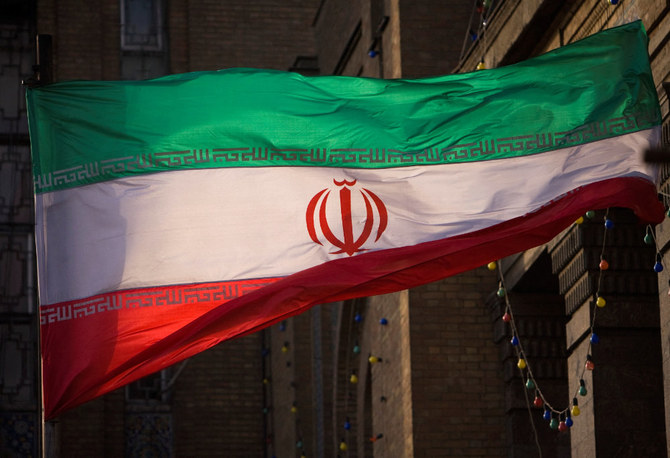د. ماجد رفي زاده: يبدو أن جميع الأطراف تريد اتفاقًا نوويًا جديدًا مع إيران
All parties appear to want a new Iran nuclear deal
Dr. Majid Rafizadeh/Arab News/July 05, 2022
The latest developments indicate there is a high probability that the P5+1 world powers (the UK, Russia, China, the US, France and Germany) and the Iranian regime will ultimately strike a new nuclear deal. This is due to the fact that the Europeans, the US and Iran are all desperate to reach an agreement for different reasons.
The EU appears determined to finalize a new deal with Iran in spite of Tehran’s increasing nuclear defiance, the rapid advancement of its nuclear program and its unnecessary and irrational demands. After the talks in Vienna were stalled, the bloc’s foreign policy chief Josep Borrell traveled to Tehran in order to “reverse current tensions” and seal the nuclear deal. He succeeded in securing a resumption of discussions as his efforts led to last week’s indirect talks between the US and Iran in Qatar.
European countries do not want to lose their economic relationships and trade with Iran. They continue to trade with Tehran in spite of the existing US sanctions. The Tehran Times reported in February: “The value of trade between Iran and the European Union reached €4.863 billion ($5.07 billion) in 2021, registering a 9 percent growth compared to the previous year… According to data released by the Tehran Chamber of Commerce, Industries, Mines and Agriculture, Iran exported €554 million-worth of commodities to the union during the first nine months of 2021, while importing goods valued at €2.7 billion.” According to the Financial Tribune, Germany is Iran’s top European trading partner, followed by Italy.
Meanwhile, as the Europeans are cutting down on their gas and oil imports from Russia, they seem to be looking for Iran to make up the deficit. Borrell in May told The Financial Times: “We Europeans will be very much beneficiaries from this (nuclear) deal, the situation has changed now. For us it was something… ‘well, we don’t need it (Iranian crude).’ Now it would be very much interesting for us to have another supplier.”
When it comes to the US, the Biden administration has invested all its political capital in a renewed nuclear deal and it seems reluctant to pursue any alternatives. The White House may fear that, if a deal is not reached with the Iranian government, a military conflict would be inevitable in order to stop the regime from obtaining nuclear weapons.
By reaching a deal, the Biden administration could claim a foreign policy accomplishment and a political victory.
Being involved in another war in the Middle East might be another negative for the Biden administration’s approval rating in the US. Currently, a majority of the American people disapprove of President Joe Biden’s handling of foreign affairs, according to a Gallup poll. But by reaching a nuclear deal, the Biden administration could claim a foreign policy accomplishment and a political victory by arguing that it has curbed Iran’s nuclear program, prevented Tehran from obtaining nuclear weapons, avoided another war in the Middle East and stopped a nuclear arms race in the region.
The other key player is the Iranian regime. Does Iran want a nuclear deal and, if so, why is it throwing down obstacles that are preventing an agreement? The Iranian leaders clearly want a deal because it would help them increase their oil and gas exports and boost their revenues. Iran is currently facing high inflation, a budget crisis, the devaluation of its currency and rising dissent.
More than 60 domestic economists last month warned the Iranian government that it needs to act immediately to address the economy. They suggested that Tehran must reach an agreement with the P5+1 in order to have sanctions lifted and it must meet the demands issued by the Financial Action Task Force, which has blacklisted Iran. They added: “The country’s situation is extremely fragile… People’s patience will run out and will place the government and the regime face to face with the people.”
But the regime is playing hardball to obtain as many concessions as it can before agreeing to a deal with the world powers. The two concessions that Iran is requesting are the removal of the Islamic Revolutionary Guard Corps from America’s list of Foreign Terrorist Organizations and a guarantee that Washington will not abandon the nuclear deal, as it previously did under Donald Trump. However, the Iranian authorities appear willing to abandon their demands, since they recently proposed a new plan without the IRGC request.
Like the US and the EU, the Iranian regime wants to get the nuclear deal done, but it is playing its classic game to obtain as many concessions as it can before signing up.
• Dr. Majid Rafizadeh is a Harvard-educated Iranian-American political scientist.
Twitter: @Dr_Rafizadeh






















